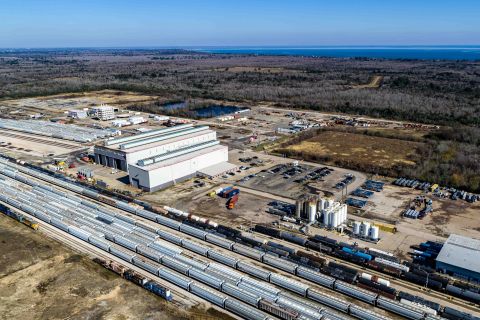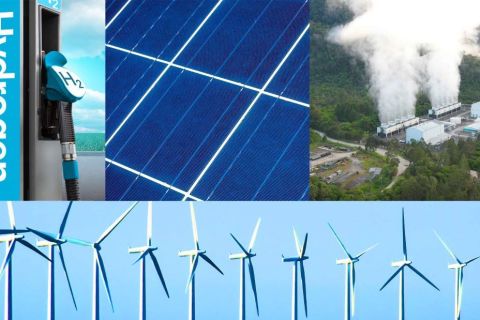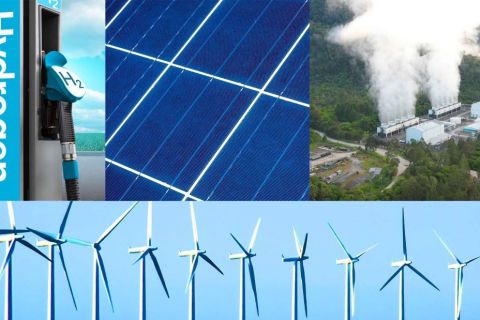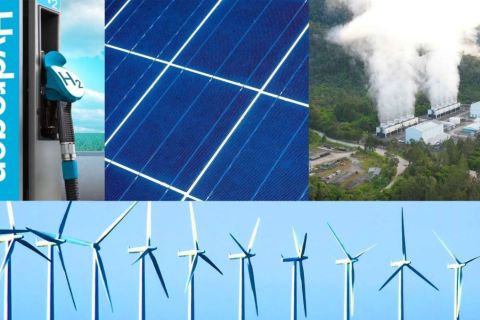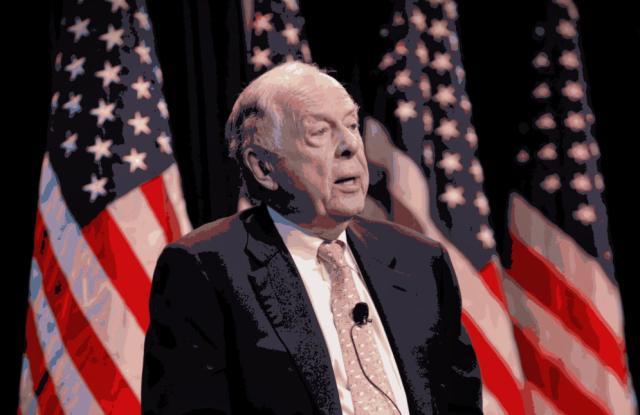
In her monthly column for Oil and Gas Investor, executive editor-at-large Leslie Haines remembers those oil and gas industry icons, like T. Boone Pickens, who seemed larger than life. (Source: Hart Energy)
[Editor's note: A version of this story appears in the October 2019 edition of Oil and Gas Investor. Subscribe to the magazine here.]
When most people pass away, that sad event does not make the first page of any newspaper. But for some oil and gas industry icons, their passing does. I call these people the first-page men. The late T. Boone Pickens was one. George Mitchell, the father of fracking in shales, was another. Michel Halbouty, credited with discovering 50 fields and twice declaring bankruptcy only to stage comebacks, was another.
These men were wildcatters who seemed larger than life because they made such a significant impact on the industry they loved and on their communities, and they enjoyed long, energetic careers full of ups and downs and controversies—and often, expensive forays outside the oil and gas industry into ranching, banking, politics and pursuits such as winemaking and horse racing.
We are prone to say we’ll never see their likes again, but I think that isn’t true. Just as the oil and gas industry constantly renews itself by applying new technologies and adopting new thinking, enabling companies to revive plays, so does the inner circle of industry icons expand. No doubt you can name some of the leaders working today who will be remembered and become known as the iconic CEOs of this era.
It saddened me to learn of Boone Pickens’ passing last month for many reasons, especially when remembering his quick, folksy wit and what he called Booneisms. I heard him speak many times, most recently at an investor forum in Dallas held at the Perot Museum of Nature and Science, as well as at several of the Hart Energy series of shale and A&D conferences. One year at A&D, he opened his keynote remarks by saying he would speak fairly quickly because it was the opening day for quail season and he had some serious hunting to do in South Texas.
He was a risk-taking oilman and commodities trader, true, but he had a passion for conservation as well, for example, testifying before Congress to stop the practice of foreign-owned companies slaughtering horses in Texas for feed that they sent to Asia. He and his wife chartered a 737 to New Orleans to rescue hundreds of abandoned dogs and cats after Hurricane Katrina.
RELATED:
In Memoriam: The Life, Career Of T. Boone Pickens
For decades Pickens tirelessly promoted the use of natural gas, before it became fashionable in the last decade. He urged American truckers to get off diesel, and the U.S. government to stop sending billions of dollars to foreign oil suppliers. “It’s the greatest transfer of wealth in human history,” he complained. Twice he was chairman of the Natural Gas Vehicle Coalition. Today, that “export” of dollars to foreign oil suppliers has changed thanks to the surge in U.S. oil production, something he could not have foreseen at the time.
Like many oilmen, he made a lot of money during his career, billions really—donated a lot—and lost a lot. He constantly reinvented his companies, his strategies and his efforts.
A Booneism from the late 1990s when he was losing money: “I told a friend, ‘This is the kind of market that builds character.’ He looked at me and said,’ If it gets any worse, you’ll have more character than Abe Lincoln.’”
In August 2001, he launched BP Capital Energy Equity Fund. By mid-2002, it was down nearly 40%. But in 2005, his funds under BP Capital Management earned $1 billion. “It’s interesting that the thing that sank us at [his former E&P empire] Mesa Petroleum—natural gas—was what made BP Capital. Timing is everything,” he wrote in his 2008 autobiography, “The First Billion is the Hardest.”
The book reveals that a few years earlier, he reached a low point when, in his late 60s, he became clinically depressed because nothing was going right: his company was losing a ton of money at the time, commodity prices were going the wrong way, and he was going through a divorce. He lost 90% of his investing capital at one point. But he always recovered. He loved sports and never gave up until the final second.
“After a half-century in the oil and gas business, I’ve learned a lot of lessons. Few have been cheap,” he wrote. “Consider my three rules of energy: No. 1: The cost of finding oil and gas is always higher than you think. No. 2: Oil and gas always take longer than expected to get on production. No. 3: Discoveries are never as large as producers originally think.”
Although he wrote those rules in 2008, as the unexpected shale boom was just getting underway, these seem to be wise rules of thumb even today.
Recommended Reading
Tangled Up in Blue: Few Developers Take FID on Hydrogen Projects
2024-04-03 - SLB, Linde and Energy Impact Partners discuss hydrogen’s future and the role natural gas will play in producing it.
John Cockerill Americas President Talks Hydrogen, Electrolyzers
2024-03-06 - Nicolas de Coignac, president of Americas for John Cockerill, recently spoke with Hart Energy about the company’s role in scaling electrolytic hydrogen in the U.S.
Energy Transition in Motion (Week of March 28, 2024)
2024-03-31 - Here is a look at some of this week’s renewable energy news, including proposals submitted to develop about 6.8 gigawatts of wind projects offshore Connecticut, Massachusetts and Rhode Island.
Energy Transition in Motion (Week of Feb. 16, 2024)
2024-02-16 - Here is a look at some of this week’s renewable energy news, including the outlook for solar and battery storage in the U.S.
Energy Transition in Motion (Week of Feb. 9, 2024)
2024-02-09 - Here is a look at some of this week’s renewable energy news, including the latest on a direct lithium extraction technology test involving one of the world’s biggest lithium producers and the company behind the technology.


